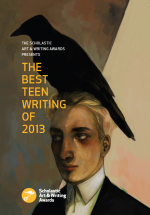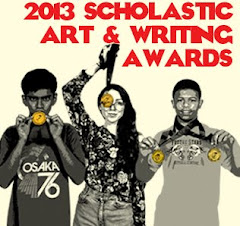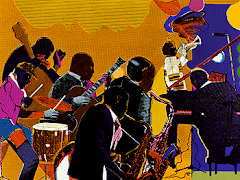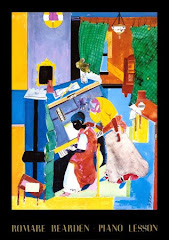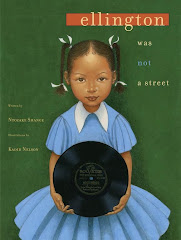Al-Bustan Seeds of Culture Presents: Naomi Shihab Nye
A Review by Sojourner Ahebee
 |
| Poet Naomi Shihab Nye w/ Al-Bustan Takht Ensemble Photo by Danielle Nowak |
Red Brocade
 |
| Naomi Shihab Nye's collection of poems on the Middle East |
A Poem by Naomi Shihab Nye
The Arabs used to say,
when a stranger appears at your door,
feed him for three days
before asking who he is,
where he’s come from,
where he’s headed.
That way, he’ll have strength
enough to answer.
Or, by then you’ll be
such good friends
you don’t care.
Let’s go back to that.
Rice? Pine nuts?
Here, take the red brocade pillow.
My child will serve water
to your horse.
No, I was not busy when you came!
I was not preparing to be busy.
That’s the armor everyone put on
to pretend they had a purpose
in the world.
I refuse to be claimed.
Your plate is waiting.
We will snip fresh mint
into your tea.
Back in December, before the new year came rushing through, I had the extreme joy and honor of having the words of beloved poet, Naomi Shihab Nye, wash right over me. At 22nd and Spruce Streets, in the middle of a cold Philadelphian winter, Ms. Nye read us poems aloud while accompanied by the Al-Bustan Takht Ensemble(directed by Hanna Khoury), a group of esteemed musicians who have dedicated their craft to Arab music.
 |
| Namoi Shihab Nye and I |
Ms. Nye is an accomplished Palestinian-American poet, and her poems are saturated in her allegiance to themes of place, home, and the world around her. Born to a Palestinian father and an American mother, and having grown up in places like St. Louis, Jerusalem, and San Antonio, she has developed a sharp eye, and her poems serve as little acts of preservation, an attempt to document all that she has seen and heard. Throughout the evening of poetry and music, Ms. Nye would recount her stories to us, poem by poem. In one story, she speaks of her father, her memory of his singing in the shower, “first in Arabic, rivery ripples of song carrying him back to his first beloved land, then in English, where his repertoire was short”( From "What Kind of Fool Am I"- 19 Varieties of Gazelle). She also spoke of her father’s figtree, his love for the fruit tree, his desire for one. And in his wanting, the poem allowed us, the audience, to sense his want for home:
At age six I ate a dried fig and shrugged.
“That’s not what I’m talking about,” he said,
“I’m talking about a fig straight from the earth --
Gift of Allah! -- On a branch so heavy
it touches the ground.
I’m talking about picking the largest, fattest,
sweetest fig
in the world and putting it in my mouth.”
(Here he’d stop and close his eyes.)
-From "My Father and the Figtree"( 19 Varieties of Gazelle)
As Ms. Nye spoke of Arabic, the Middle East, themes of leaving and displacement, a red brocade, girls who would go on to write the story of their generation, of fathers, of coffee and Palestinians, the music from the ensemble would mix into her words, serving not as backdrop, but as a second way to hear the poem. The violin, the qanun, the percussion, and even the cello had much to say about each poem, and as each musician played their part, Ms. Nye’s poems began to tell new stories. The energy in the space was almost tangible. You wanted to fall right into it.
Al-Bustan Seeds of Culture is dedicated to presenting and teaching Arab culture through the arts and language.
“Al-Bustan,” Arabic for “The Garden,” offers structured exposure to the language, art, music, dance, literature, and natural environment of the Arab world. Al-Bustan promotes cross-cultural understanding among youth and adults of all ethnic, religious, and socio-economic backgrounds through artistic and educational programs. Al-Bustan supports the pursuit and affirmation of Arab American cultural identity, while playing a constructive civic role within broader American society.
Visit their website to learn more: http://albustanseeds.org
How To Get Involved:
In Fall 2009, Al-Bustan formed the Philadelphia Arab Music Ensemble, open to youth and adults of diverse backgrounds interesting in learning to play and sing the classical and traditional repertoire of Arab music. Led by Music Director Hanna Khoury, this community ensemble meets once a week for 3 hours at St. Mary’s Parish Hall located at UPenn campus. The music of the major artist invited each year by Al-Bustan defines the repertoire learned by the Ensemble. In 2010, acclaimed Palestinian musician and composer Simon Shahaeen was the guest artist, and in 2011, acclaimed Lebanese musician, composer and singer Marcel Khalife.
For More Information: http://albustanseeds.org/music/ensembles/

